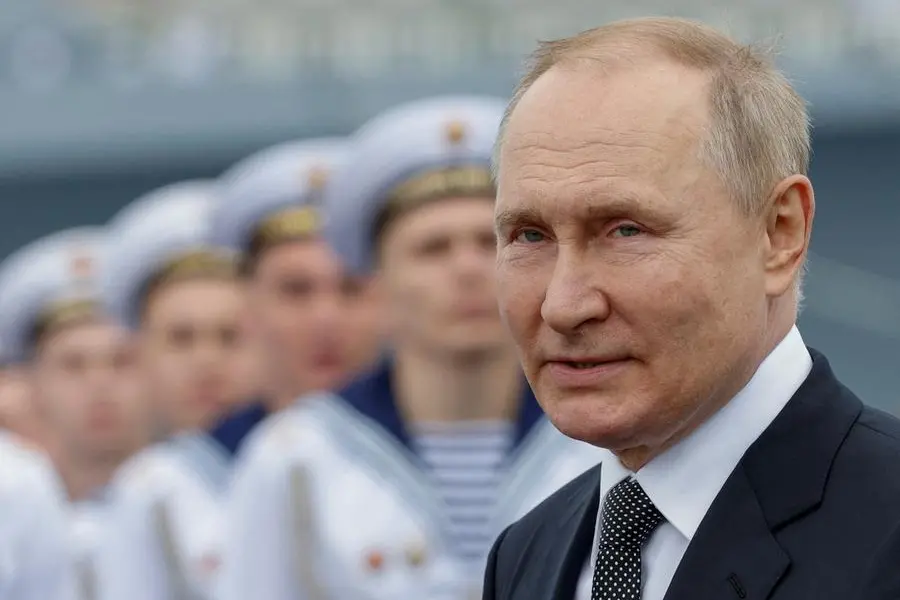PHOTO
President Vladimir Putin said on Friday that 95% of Russia's strategic nuclear forces had been modernised and that the Air Force had just taken delivery of four new supersonic nuclear-capable bombers.
Putin made the comments in a recorded speech to mark Russia's annual Defender of the Fatherland Day, which celebrates the armed forces, a day after he flew on a modernised Tu-160M nuclear-capable strategic bomber.
On the eve of the second anniversary of the start of the war in Ukraine, the Russian leader praised soldiers fighting there in what he called a "special military operation", hailing them as heroes battling for "truth and justice."
He also laid a wreath at the tomb of the unknown soldier at the foot of the Kremlin wall to honour those who have fallen in battle.
He devoted much of his speech to what he said were the achievements of the military-industrial complex.
His message: that Russia's nuclear triad - its strategic land, sea and air nuclear capabilities - were up to date, being constantly modernised, and in good order.
"Incorporating our real combat experience, we will continue to strengthen the Armed Forces in every possible way, including ongoing re-equipping and modernisation efforts," Putin said.
"Today, the share of modern weapons and equipment in the strategic nuclear forces has already reached 95 percent, while the naval component of the 'nuclear triad' is at almost 100 percent," he added.
Putin said that Russia had started serial production of its new Zircon hypersonic missiles and that new strike systems, which he did not specify, were being tested.
New strategic submarines had been added to the navy, and four Tu-160M nuclear-capable bomber planes of the type he flew in on Thursday had just been delivered to the armed forces.
"Next in line is the development and serial production of promising models, the introduction of artificial intelligence technologies in the military sphere," he said.
Putin has frequently said that Russia's latest generation of advanced weapons is unmatched by any rival, but some of its new systems have seen delays in testing and deployment.
Last month, the head of the company that makes the Zircon hypersonic missile was quoted by state media as saying that putting it into service was "not a quick procedure" and would involve "a certain amount of testing".
In the course of the war in Ukraine, Putin has repeatedly reminded the West of Russia's nuclear capabilities.
The plane he flew in on Thursday is capable of carrying 12 cruise missiles or 12 short-range nuclear missiles and can fly 12,000 km (7,500 miles) non—stop without refuelling.
Putin described it as new and reliable after a 30-minute demo flight that a state TV reporter called a "unique event". (Reporting by Reuters Writing by Andrew Osborn and Mark Trevelyan Editing by Andrew Heavens/Andrew Osborn)





















